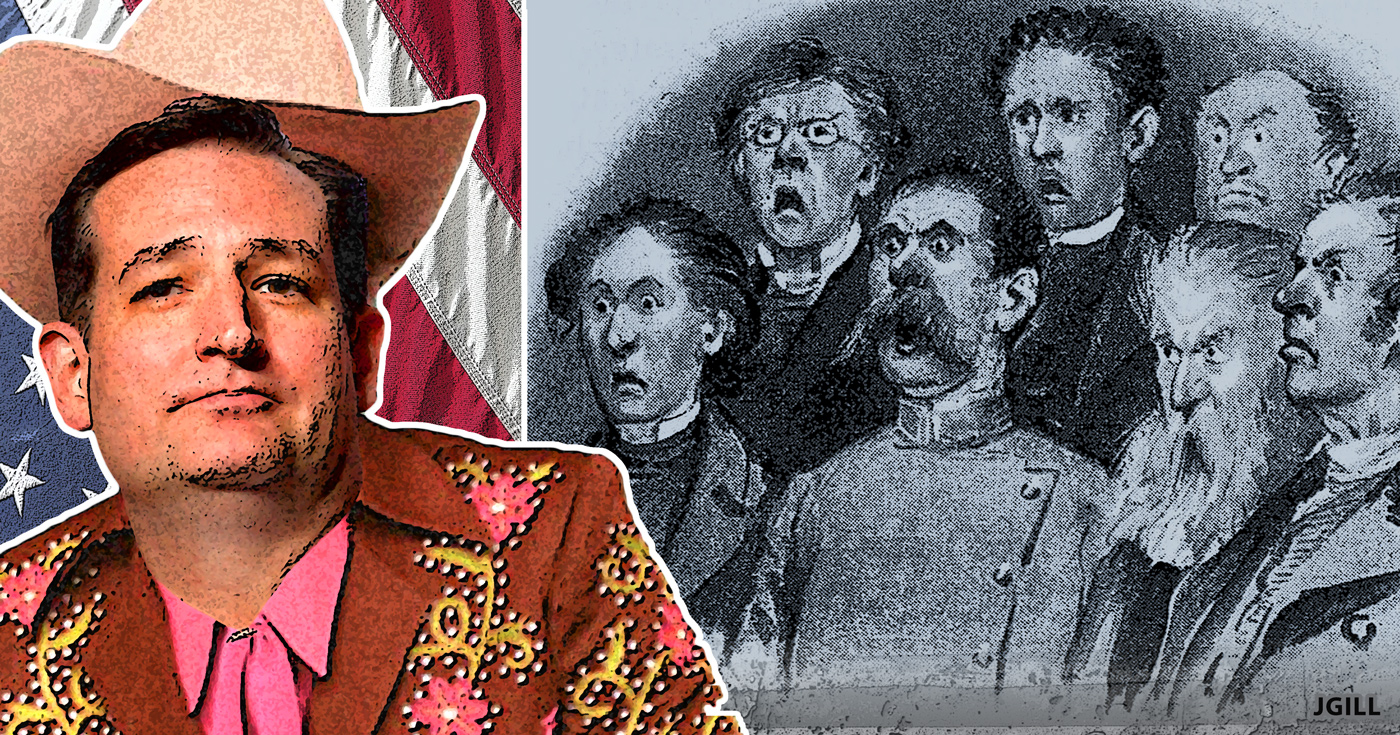The cultural differences between left and right may be stronger than the political.
When Sen. Ted Cruz answered a question about his musical taste posed by a CBS news correspondent, and he announced that his preference switched after 2001, 9/11, the leftosphere fell of its rocker and into convulsions.
Why?
He said he switched from listening to classic rock to country, and did so because the country music culture responded to the 9/11 atrocity so much better than did rock-and-roll culture.
Confession: my musical tastes lean toward classic rock. But there’s no way I would get upset about a politician’s musical choices — unless he started listening to Wagner while reviving an interest in National Socialism.
But boy, on the left there was a lot of outrage and indignation. At least, Matt Welch of Reason quoted a good spattering of it, and I found more on Twitter and elsewhere. On Slate? Snark. A YouTuber tubed Cruz’s change as “pandering.” And in New York magazine, Jonathan Chait identified Cruz’s professed change-of-taste “an incredible testament to his personal willpower.”
Huh?
You may or may not like country music, or appreciate the last 30 years of it, or its origins, or its commercialization, or the twang, but that stuff’s really not that important.
A conservative found political reasons to change his listening habits. Wow. A matter of self-definition? Whatever. It neither builds up nor undermines his philosophy or program.
Though certainly Conway Twitty’s “It’s Only Make Believe” provides more than a cultural context for understanding much of what happens in Washington.
This is Common Sense. I’m Paul Jacob.
